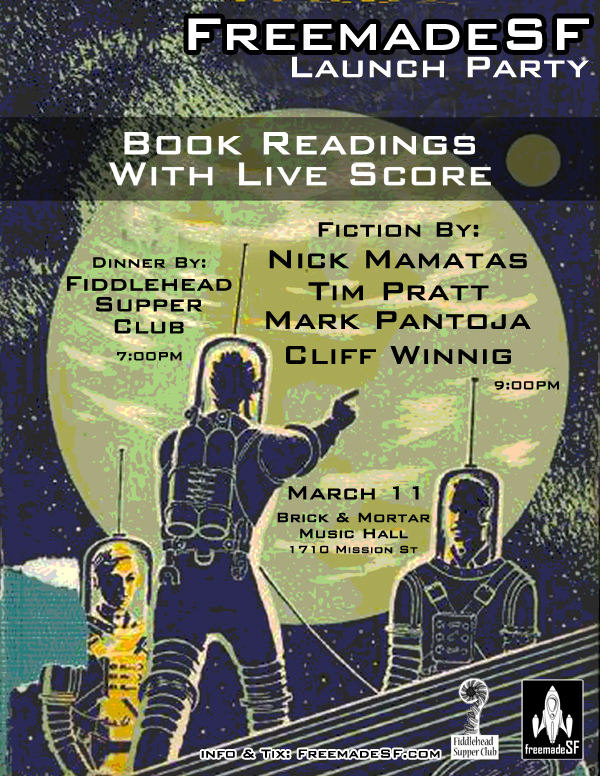Won’t somebody rid me of these troublesome books? –King Henry II, probably
The time has come for my more-or-less annual book sale. I just got another box of author copies, and books are filling up my house and tottering in dangerous piles. I also have quarterly estimated taxes due in September so money is welcome.
Here’s where you come in: Buy my books! (They make great gifts. Even if just for yourself.)
You can get signed and/or inscribed copies for cover price (I’ll round up to destroy any stray pennies), plus $5 shipping per book for mass market paperbacks and $7 each for trade paperbacks/hardcovers. The listed price includes shipping costs for the US.
For shipping outside the US, add an extra $10 to the listed price. (Overseas shipping has gone way up this year. Sorry about that. It costs nearly $20 to send a one-pound package to, say, Spain.)
Write to timpratt@gmail.com or post in the comments here saying what you want and telling me if you want them signed and/or personalized. I’ll do the math and tell you what you owe me and where to send the PayPal money.
First-come, first-served, which is why you should comment or e-mail instead of just sending money — I’d hate for you to pay for something I already sold. (First-time comments are moderated here, so don’t worry if your comment doesn’t show up immediately.)
I’ll run the sale for a week and a bit, from now until midnight PST on Friday, August 23.
Here’s what’s available. First editions, unless otherwise noted.
Marla Mason series:
Mass-market paperback of Blood Engines, $12 (16 14 copies available)
Mass-market paperback of Dead Reign, $12 (6 copies)
Mass-market paperback of Spell Games, $12 (5 copies)
Trade Paperback of Bone Shop, $20 (This is the pretty edition with the Dan Dos Santos cover art) (2 1 copy) Sold out!
Trade Paperback of Broken Mirrors, $21 (2 1 copy) Sold out!
Trade Paperback of Grim Tides, $21 (3 1 copy)
Standalone novels:
Limited edition hardcover of Briarpatch (These are unnumbered author copies) $55 (3 1 copy)
Hardcover of The Constantine Affliction (as by T. Aaron Payton), $34 (15 14 copies)
Trade paperback of The Constantine Affliction (as by T. Aaron Payton), $20 (15 14 copies)
Trade paperback of The Strange Adventures of Rangergirl, $19 (7 copies)
Trade paperback of The Nex, $20 (1 copy)
Mass-market paperback of Forgotten Realms: Venom In Her Veins, $13 (20 15 copies)
Mass-market paperback of Pathfinder Tales: City of the Fallen Sky, $15 (12 10 copies)
Mass-market paperback of Pathfinder Tales: Liar’s Blade, $15 (12 10 copies)
I’ll do an RPG bundle, too: Venom In Her Veins, City of the Fallen Sky, and Liar’s Blade for $40 if ordered all together.
Collections
Paperback of poetry collection If There Were Wolves, $15 (2 1 copy)
Trade paperback of collection Little Gods, $21 (Not the first edition that includes the poems, but the more attractive offset edition) (4 copies)
Trade paperback of collection Antiquities and Tangibles and Other Stories, $21 (4 1 copy) Sold out!
Anthologies I edited or have a story in
Trade paperback of Sympathy for the Devil (edited by me, Tim Pratt!), $23 (5 4 copies)
Trade paperback of Robots: The Recent A.I. edited by Rich Horton, $22 (1 copy)
Trade paperback of Witches: Wicked, Wild & Wonderful edited by Paula Guran, $23 (1 copy)
Trade paperback of New Cthulhu: The Recent Weird, edited by Paula Guran, $23 (1 copy)
Hardcover of Under My Hat: Tales from the Cauldron, edited by Jonathan Strahan, $24 (1 copy)
Inspired by Elizabeth Bear’s book sale, I’ll throw in a bonus chapbook or ‘zine from my hoard with each order.
That’s it. Make your wishes known.

